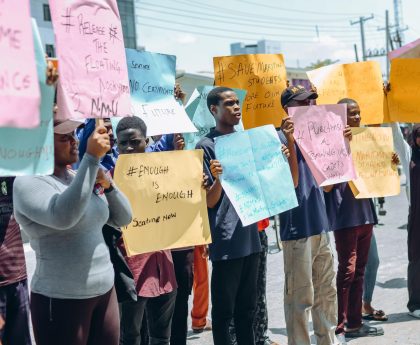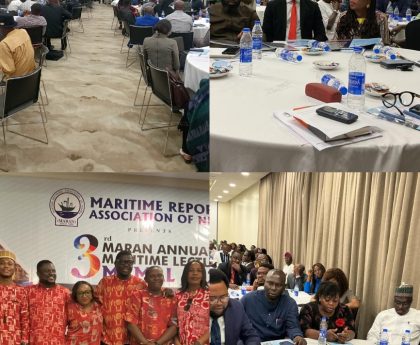In a bold move to curb the rising tide of fatalities on Nigeria’s waterways, the Federal Government has announced plans to phase out rickety boats and replace them with safer, standard-compliant vessels. This initiative is part of a broader strategy to improve maritime safety and protect lives across the country.
The announcement was made by the Minister of Marine and Blue Economy, Adegboyega Oyetola, CON, on Friday during the official presentation of the Special Committee on the Prevention of Boat Mishaps report.
Oyetola emphasized that the current rate of boat accidents is both unacceptable and preventable, and called for collaborative efforts between federal and state governments to enforce safety standards.
“The fight against boat mishaps cannot be won by the Federal Government alone. We call on state governments and other sub-national authorities to join us in enforcing standards and saving lives,” he stated.
He described waterway safety as not just a policy obligation but a moral responsibility, stressing that every life lost is one too many.
The Minister outlined several immediate and long-term measures, including:
– Phasing out unsafe boats and introducing standard-compliant alternatives.
– Nationwide distribution of life jackets to riverine and coastal communities.
– Public awareness campaigns to promote consistent and correct use of life jackets.
– Behavioral change initiatives targeting water transport users.
Oyetola also reiterated the non-negotiable importance of life jackets, urging beneficiaries to prioritize safety during water travel.
The 16-member Special Committee, inaugurated by the Minister on 27th February 2025, was tasked with conducting a comprehensive review of commercial boat operations in Nigeria, identifying causes of boat mishaps, and proposing sustainable solutions.
Mr. Bolaji Oyebamiji, the Committee Chairman and Managing Director of the National Inland Waterways Authority (NIWA), presented the detailed report to the Minister, outlining its structure and key findings.
Oyebamiji stated that the committee exceeded its initial six-week mandate to ensure a thorough and credible outcome.
The report, comprising six chapters, includes detailed analyses of current operations, regulatory gaps, design standards, and institutional capacity. It also proposes a comprehensive plan to enhance safety and oversight.
Among the 64 recommendations reviewed by four technical sub-committees, 17 key proposals were highlighted in the final chapter.
Some of the recommendations include: establishment of a Coastal Guard to enforce waterway safety regulations; creation of a National Boat Design Policy to standardise permitted vessel types; mandatory certification and formal training for boat operators; increased funding for NIWA to strengthen hydrographic and marine engineering functions; and setting up search and rescue stations at strategic locations across inland waterways.
PHOTO: The Minister of Marine and Blue Economy, Adegboyega Oyetola, CON (middle); the Ministry’ Permanent Secretary, Mr Olufemi Oloruntola (left); and the Managing Director of National Inland Waterways Authority (NIWA), Mr. Bola Oyebamiji; during the presentation of the Committee’s report on boat mishaps on Friday.





